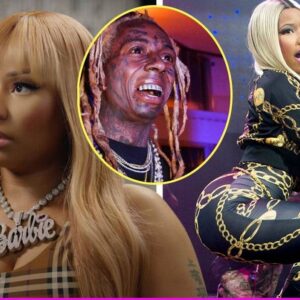Last week, USA Today posted a job ad for a Taylor Swift reporter, seeking an experienced journalist and content creator to “capture the music and cultural impact of Taylor Swift”.
It’s not the first time Swift has been the focus of professional and academic work. In 2022, New York University’s Clive Davis Insтιтute announced a course focused on Swift, taught by Rolling Stone’s Brittany Spanos. They also gave Swift an honorary doctorate in fine arts, as “one of the most prolific and celebrated artists of her generation”.

Other universities around the world followed with their own dedicated courses, including “The Psychology of Taylor Swift”, “The Taylor Swift Songbook” and “Literature: Taylor’s Version”.
While musicians and celebrities have been the subject of our fascinations for decades, it’s not often they receive such individualised attention. Swift’s impressive career can be studied from multiple perspectives, including marketing, fandom, business and songwriting, to name a few.

Other universities around the world followed with their own dedicated courses, including “The Psychology of Taylor Swift”, “The Taylor Swift Songbook” and “Literature: Taylor’s Version”.
While musicians and celebrities have been the subject of our fascinations for decades, it’s not often they receive such individualised attention. Swift’s impressive career can be studied from multiple perspectives, including marketing, fandom, business and songwriting, to name a few.

From a music perspective, Swift has broken a lot of records. Last month, she became the first female artist in Spotify history to reach 100 million monthly listeners.
Swift has achieved 12 number one albums on Billboard, the most by a woman artist, overtaking Barbra Streisand earlier this year.
She’s the first and only woman solo artist to win the Album Of The Year Grammy three times, for Fearless (2009), 1989 (2015) and Folklore (2020) – each in a different musical genre. It’s a credit to Swift’s masterful songwriting, and demonstrates her ability to adapt her craft for different audiences.
There is an expectation for female artists to constantly re-invent themselves, something Swift reflected on in her Netflix documentary Miss Americana: “The female artists I know of have to remake themselves like 20 times more than the male artists, or you’re out of a job.”
Over the course of her career, Swift has evolved from an award-winning country music singer to one of the biggest pop stars in the world. Each of her 10 original studio albums has a distinct theme and aesthetic, which have been celebrated on Swift’s juggernaut Eras Tour.

The tour, which has just wrapped up its first US leg, is set to be the highest grossing of all time, boosting local travel and tourism revenue along the way. A recent report estimates the tour could help add a monumental US$5 billion to the worldwide economy.
Swift has been instrumental in changing the business game for musicians. She’s taken on record labels and streaming services, advocating for better deals for artists.
In 2015, Apple Music changed its payment policies after Swift wrote an open letter campaigning for better compensation.
Most notably, she took a stand against her former record label, Big Machine Records, after it wouldn’t give her an opportunity to buy back her original master recordings. Her back catalogue was eventually sold to music executive Scooter Braun, kicking off a very public feud.
While she’s not the first artist to go after her masters, she’s generated an enormous amount of attention to an issue that’s often overlooked. Of course, Swift is in a position of privilege – she can take risks many other artists can’t afford to. But with this power she’s driving conversations around contracts and the value of music, paving the way for emerging artists.
In an effort to regain control of her earlier work, Swift announced she would be re-recording her first six albums. Each re-recorded album has included additional vault tracks, previously unreleased songs left off the original recordings.
These releases have each been accompanied by a robust promotional campaign, including new merchandise and multiple, limited-edition versions of each record for fans to collect.
The release of Speak Now (Taylor’s Version) marked the halfway point of this process, which has paid off big time. Fearless (Taylor’s Version), Red (Taylor’s Version) and Speak Now (Taylor’s Version) have all performed better than the originals.

This is largely due to the unwavering support from her fans, known as “Swifties”. They’ve embraced the new recordings, shaming anyone who plays the original “stolen” versions.
Swift’s loyal fandom are known for their high levels of participation and creativity. Fans have spent an extensive amount of time hand-making outfits for concerts, and discussing elaborate theories online.
Swift has a reputation for leaving clues, known as Easter eggs, in her lyrics, music videos, social media posts and interviews. There are fan accounts dedicated to analysing these Easter eggs, studying specific number patterns and phrases to uncover hints for what Swift might do next.
Swift and Taylor Nation, a branch of her management team, encourage these behaviours by rewarding fans for their participation.
News
Nicki Minaj Admitted Lil Wayne’s Jokes About Her Body Led Her to Get Butt Injections
Nicki Minaj has had rumors flying about her rear end for years. She admitted that she’s gotten work done on her butt, but her desire to change…
BREAKING: “I would never accept saving your woke brand, it’s too toxic and dirty”: Riley turns down Bud Light’s $50 million offer
In an era where corporate brands are increasingly attempting to align themselves with social and political causes, the intersection of marketing and activism has never been more…
Breakthrough: Elon Musk invests $1 billion in Mel Gibson and Mark Wahlberg’s new NON-WOKE Movies Studio
In a surprising turn of events, billionaire entrepreneur Elon Musk has announced a substantial investment of $1 billion in a new film production venture led by Hollywood…
BREAKING: Roseanne Barr Joins Forces Non-Woke Production Studio
BREAKING: Roseanne Barr Joins Forces Non-Woke Production Studio In an unexpected move that has sent ripples through Hollywood, comedic icon Roseanne Barr has announced her collaboration with…
Breaking: Mel Gibson’s New Non-Woke Film Studio Will See James Woods Join Him After He Leaves Hollywood
The entertainment world has been shaken by the official announcement that legendary actor James Woods is joining Mel Gibson’s brand-new, non-woke film company in Hollywood. With this…
Breaking: Kid Rock Says “We Need More Toby Keiths and Fewer Taylor Swifts” and Refuses to Join Taylor Swift on a Collaborative Tour.
Breaking: Kid Rock Says “We Need More Toby Keiths and Fewer Taylor Swifts” and Refuses to Join Taylor Swift on a Collaborative Tour. In a music business…
End of content
No more pages to load











